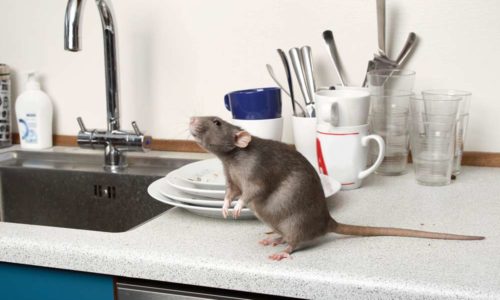Rodents have long been associated with disease, contamination, and serious health risks for humans. From the Black Death to modern-day outbreaks, rats and mice continue to be a major public health concern. While improved sanitation and pest control measures have reduced their impact, rodents still pose a serious threat to health and can spread a variety of dangerous diseases through direct and indirect contact.
Understanding the risks associated with rodent infestations is essential for protecting your home, family, and workplace. With Flick’s SMART Digital Pest Control system, you can take proactive measures to detect and eliminate rodent activity before it becomes a serious problem.
How Rodents Spread Diseases
Rodents are known to carry and transmit over 35 diseases, many of which can cause severe health complications. They can spread these illnesses in multiple ways:
- Direct Transmission: Rodents can directly infect humans through bites, scratches, or handling contaminated carcasses.
- Contaminated Food & Water: Rodents frequently urinate and defecate near food sources, contaminating surfaces and food supplies with harmful bacteria.
- Airborne Contamination: When rodent droppings, urine, or nesting materials dry out, particles can become airborne, leading to respiratory infections.
- Parasites & Vectors: Rodents often host parasites such as fleas, mites, and ticks, which can spread additional diseases to humans and pets.
Diseases Directly Transmitted by Rodents
Rodents are known carriers of numerous diseases, some of which can cause life-threatening conditions. These include:
- Hantavirus Pulmonary Syndrome
- Rat Bite Fever
- Hemorrhagic Fever with Renal Syndrome
- Salmonellosis
- Lassa Fever
- Leptospirosis
- South American Arenaviruses
- Lymphocytic Chorio-meningitis
- Tularemia
- Omsk Hemorrhagic Fever
- Plague
Diseases Indirectly Transmitted by Rodents
Beyond direct transmission, rodents contribute to the spread of various vector-borne diseases through parasites that live on their bodies. Some of these include:
- Babesiosis
- Lyme Disease
- West Nile Virus
- Powassan Virus
- Cutaneous Leishmaniasis
- Murine Typhus
- Scrub Typhus
- Sylvatic Typhus
- Rickettsialpox
- Colorado Tick Fever
- La Crosse Encephalitis
- Omsk Hemorrhagic Fever
- Relapsing Fever
- Rocky Mountain Spotted Fever
- Human Granulocytic Anaplasmosis
Given the variety of ways rodents can spread disease, simply avoiding direct contact is not enough. Even breathing in contaminated dust or consuming food exposed to rodent activity can pose a risk.

Rodents and Public Health Risks
Rodents are particularly dangerous because they spread diseases in multiple ways. Avoiding rat bites alone is not enough to prevent exposure. Humans can contract rodent-borne diseases through:
- Handling infected dead rodents
- Indirect contact through parasites like fleas, mites, and ticks
- Eating food or drinking water contaminated with rodent urine, saliva, hair, or feces
- Breathing air that contains dust contaminated with rodent urine or feces
This wide range of diseases comes with an equally wide range of symptoms and complications. Some, like Hantavirus Pulmonary Syndrome, can cause severe respiratory failure and even death. Others, such as Leptospirosis, can lead to long-term organ damage if untreated.
Additionally, rodent-borne diseases have the potential to trigger pandemics. While the bubonic plague is a well-known historical example, modern viruses spread by rodents could become future public health threats. Given the potential for human-to-human transmission of some of these diseases, keeping rodent populations under control is critical in preventing widespread outbreaks.
Preventing Rodent Infestations with Flick’s SMART Digital Pest Control
The best way to protect your family and property from the dangers of rodents is through early detection and prevention. Flick’s SMART Digital Pest Control system offers proactive monitoring and control, allowing you to:
- Detect rodent activity before an infestation takes hold
- Use non-toxic, environmentally friendly solutions to prevent rodent-related health risks
- Protect food storage areas, kitchens, and high-risk environments from contamination
- Monitor and manage pest activity in real time with advanced digital technology
A rodent-free home is a healthier home. Don’t wait until rodents become a serious problem—contact Flick today for a professional assessment and keep your property safe from rodent-related health risks.
Enjoyed this article?
If you found this article helpful, sign up for our free Quarterly Newsletter to receive all our tips and tricks on pest control and disinfection.
Sign Me Up!